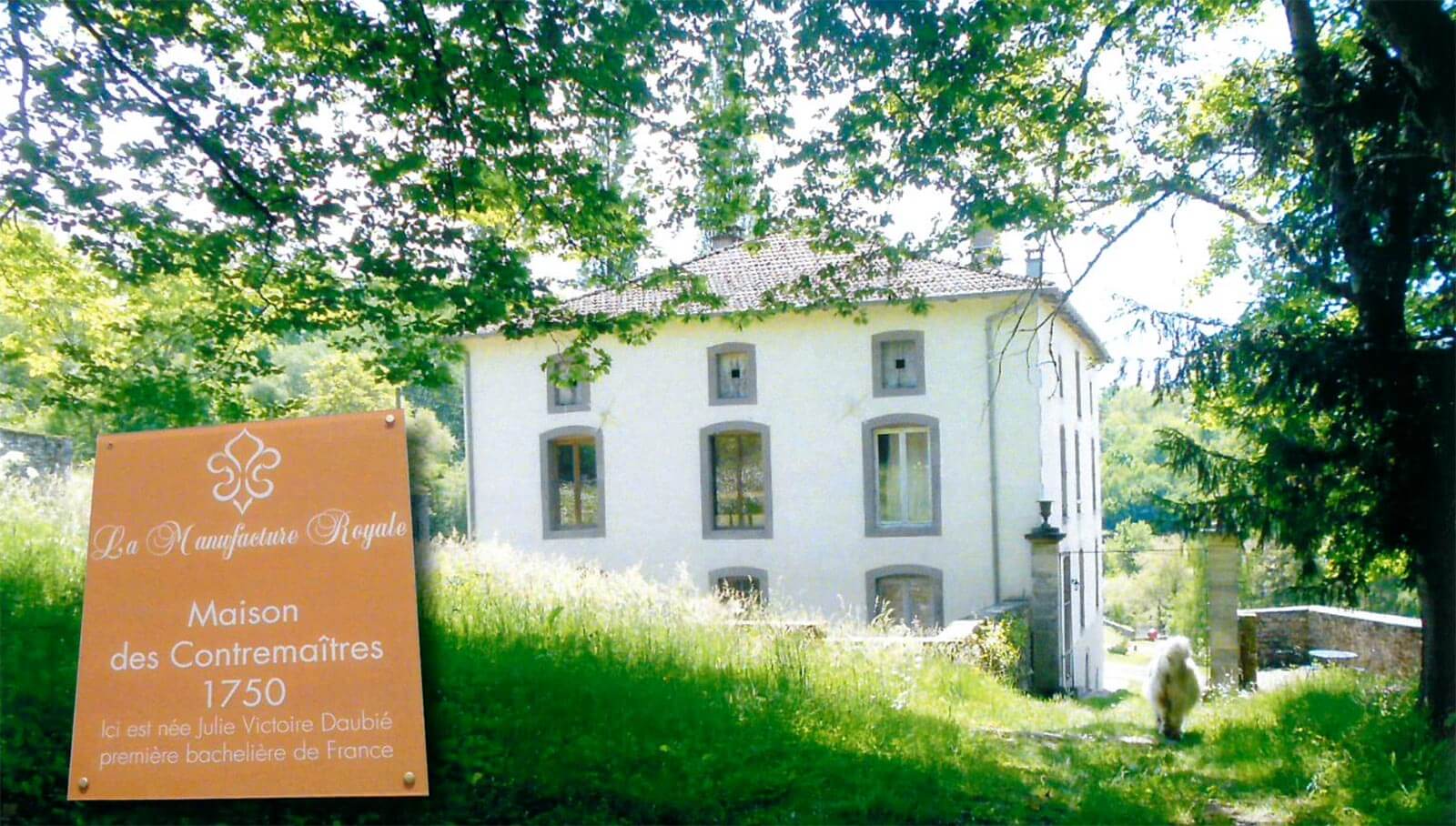Julie-Victoire Daubié, the first woman to pass the baccalaureate
Julie-Victoire Daubié was born in 1824 at the Manufacture Royale de Bains-les Bains in the Vosges region of France. She would become the first woman in France to be awarded the baccalaureate. This is why the French Ministry of Culture has granted this site the “Maisons des Illustres” label which recognises historic houses which preserve and transmit the memory of men and women who made distinguished contributions to the political, social and cultural history of France.
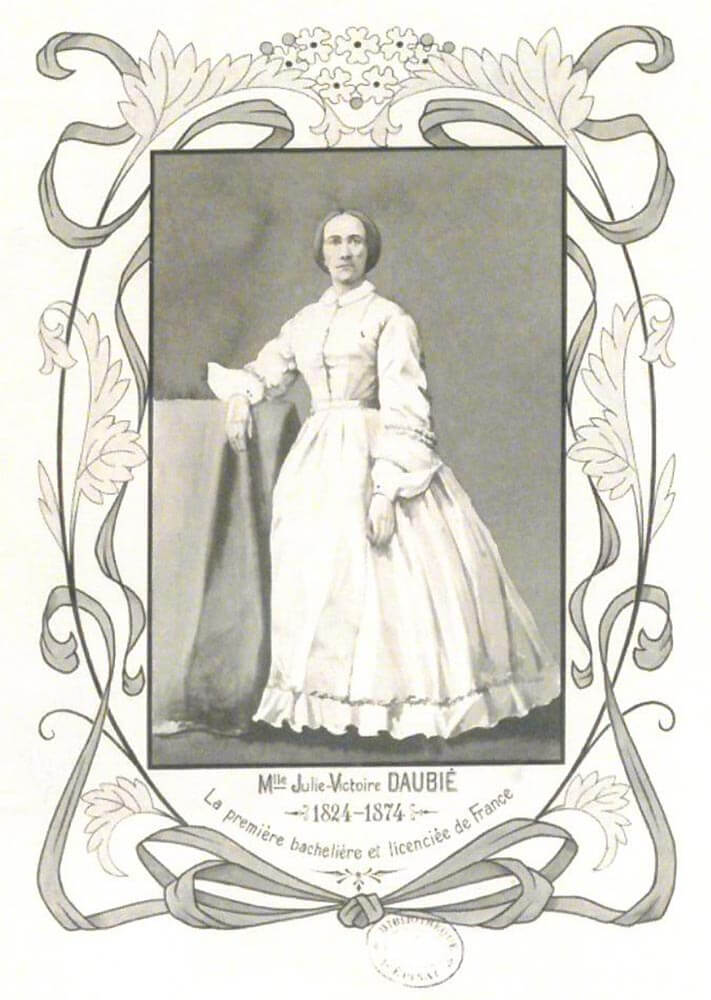
Julie-Victoire Daubié and the Manufacture Royale de Bains-les-Bains
The Manufacture Royale de Bains-les-Bains, founded in 1733 by Georges Puton, is the oldest metallurgical factory in the Vosges and the oldest industrial site of this type in Lorraine. The extremely well-preserved site includes a château, a chapel, a number of workers’ cottages, several industrial buildings and an overseer’s house. The factory produced platonically. It location by the water meant the wood needed for the production process could be brought in easily.
It is here that Julie-Victoire Daubié was born and spent her childhood. Her father was a cashier at the Manufacture Royale. She witnessed major industrial upheaval at the site and a deterioration in workers’ conditions, and especially the place of women in the system.
Today, there is a permanent exhibition in the coal hall dedicated to the first woman in France to gain the baccalaureate.
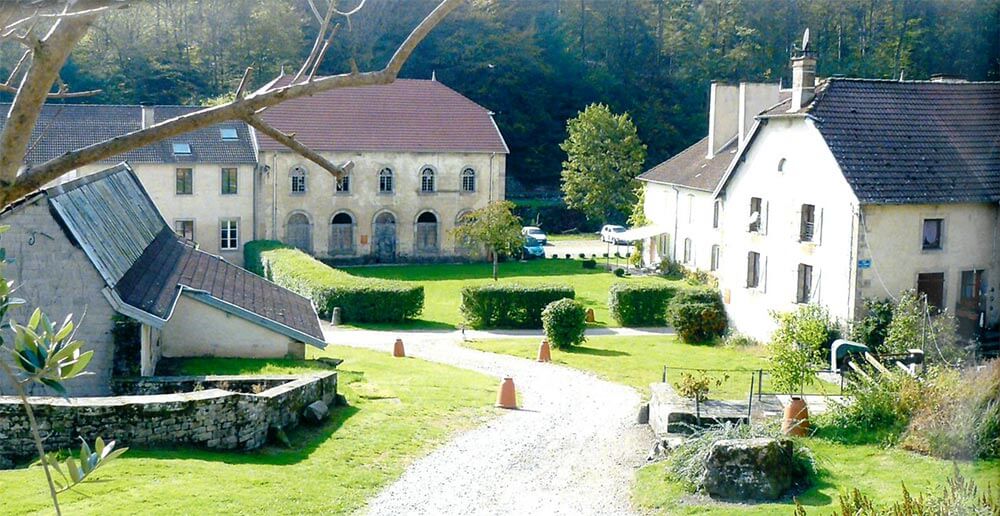
Julie-Victoire Daubié, a determined woman
Julie-Victoire Daubié was the youngest of eight children. She loved to learn and enjoyed going to one of the few girls’ schools that existed at the time in Fontenoy-le-Château. One of her brothers, who was a priest, taught her Latin and Greek. At the age of 20 she gained a “certificat de capacité”, the only State diploma that was open to girls, which allowed her to teach and become a governess to the children of factory owners in the Vosges.
However, she was determined to persist with her education and in 1861, at the age of 37, she became the first woman to be awarded the baccalaureate. After being refused permission to register for the exam by the Ministry of Public Instruction and the head of education services in Aix, she managed to register in Lyon and took the exam in a separate room. She was only given her certificate 6 months later, thanks to the intervention of the Empress Eugénie, because the Minister of Public Instruction, Gustave Rouland, refused to sign the certificate on the grounds that it “ridiculed the Minister of Public Instruction”.
She was a woman of letters who corresponded with Alexandre Dumas fils, George Sand and many other writers of the day. She wrote books on the condition of women and on primary education, including an essay entitled La femme pauvre au XIXe siècle (The Poor Woman in the 19th Century) which won first prize in a competition organised by the Académie des belles-lettres de Lyon in 1859.
She continued her higher education and, although she was not allowed to attend lectures at the Sorbonne as they were for men only, she became the first woman to gain a bachelor of arts degree on 28 October 1871, after which she decided to embark on a doctorate. Her thesis was on the condition of women in Roman society, but she never finished it.
She died of tuberculosis in 1874, exhausted and profoundly affected by the censorship of three books published by her association for the progressive emancipation of women in 1873.
She was also a nature-lover and, as a child, had made her own herbarium, which included two hundred-year old trees that still stood on the Manufacture Royale site.
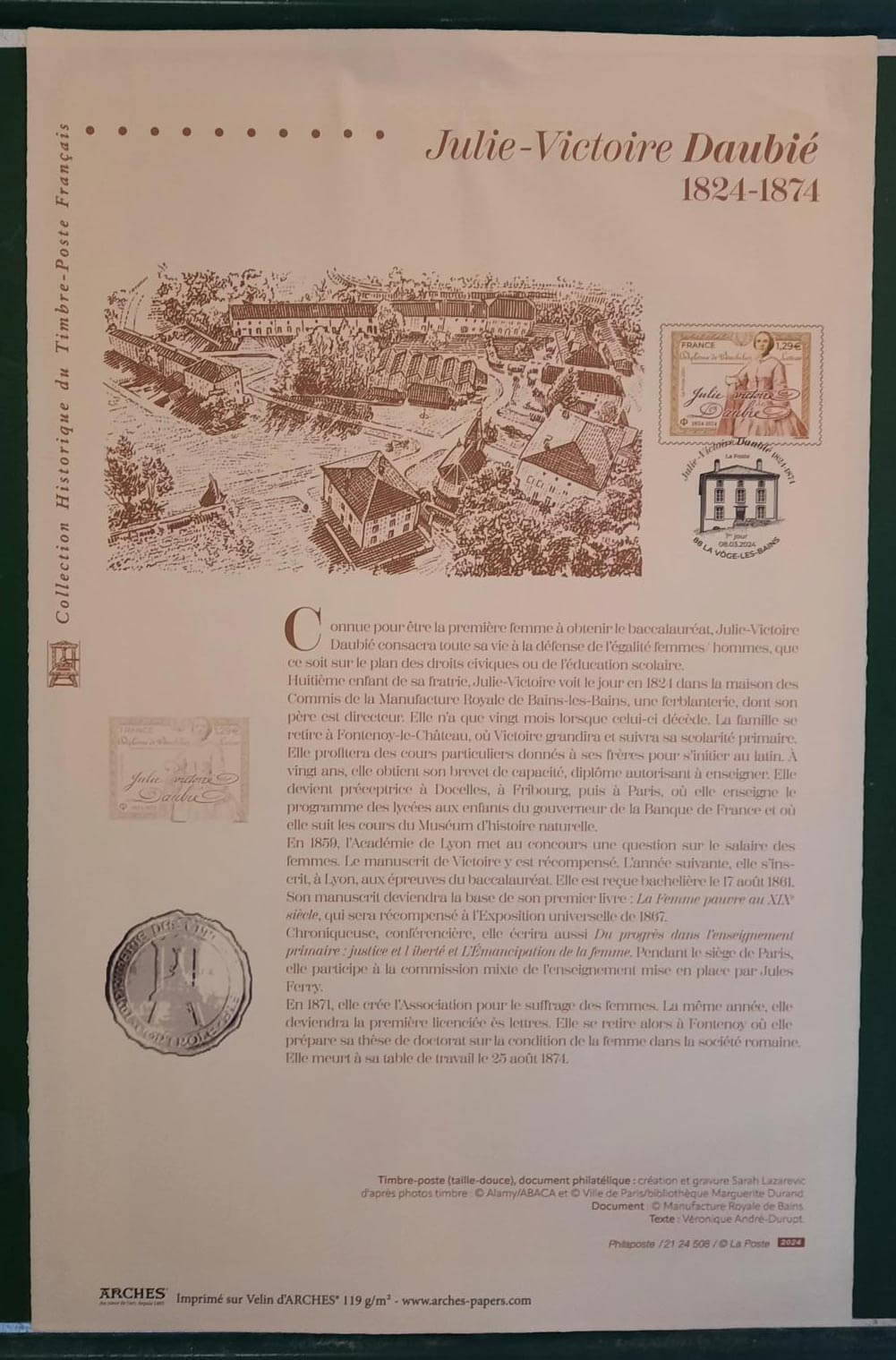
Print on Velin d’ARCHES® Text Wove 119 gsm paper
To celebrate the two hundredth anniversary of her birth, numerous events are being organised at the Manufacture Royale de Bains-les-Bains and at the Musée de la Broderie (embroidery museum) in Fontenoy. A commemorative postage stamp has also been issued, in recognition of Julie-Victoire’s struggle to achieve the emancipation of women. It features a design and intaglio engraving by Sarah Lazarevic.
You can find details of all the events on www.julievictoiredaubie.fr
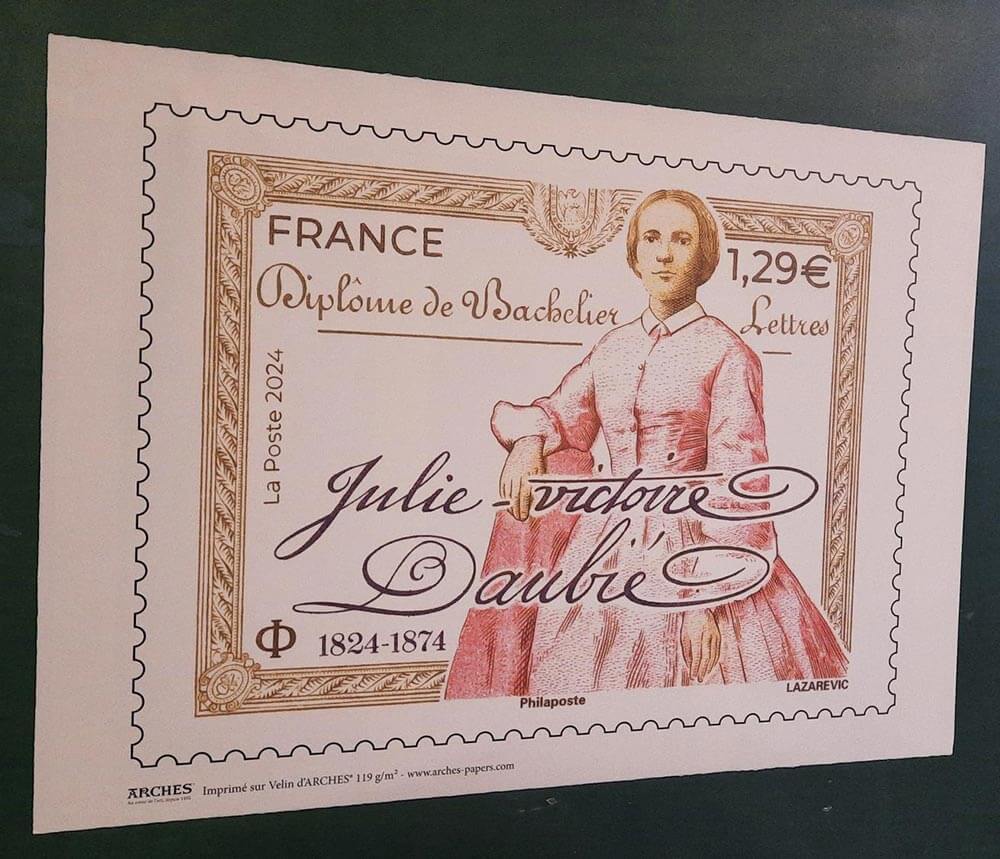
Print on Velin d’ARCHES® Text Wove 119 gsm paper



